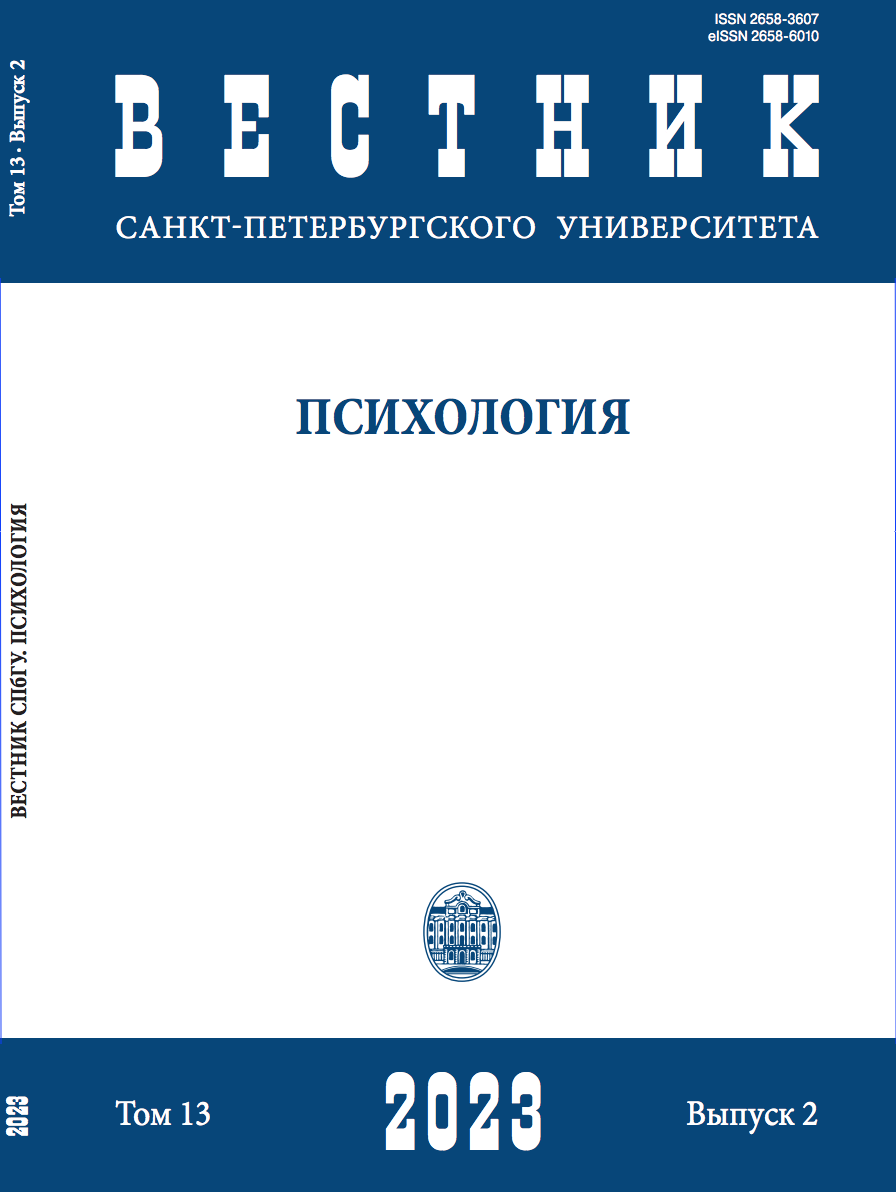Российская версия шкалы оценки формирующейся взрослости (IDEA-R): особенности развития студентов
Аннотация
Формирующаяся взрослость — новый переходный период развития человека 18–25 лет, который отличается рядом демографических и психологических характеристик, культурно и социально-экономически обусловленных. Ключевые аспекты формирующейся взрослости исследованы во многих развитых странах, кроме России, с помощью единственного инструмента — шкалы оценки формирующейся взрослости. Цель нашей работы — адаптация этой шкалы для российской выборки для ее последующего использования в кросс-культурных исследованиях, а также оценка ее психометрических свойств. Выборку составили данные, полученные от 410 студентов в возрасте 18–25 лет, обучающихся в российских вузах по направлениям бакалавриата и магистратуры. Измерены показатели: формирующейся взрослости (IDEA-R), удовлетворенности жизнью (шкала Э.Динера) и отношения к будущему (шкала Ф.Зимбардо). Эксплораторный факторный анализ показал, что шкала IDEA-R содержит 31 исходный пункт и имеет шестифакторную структуру: «Исследование идентичности / сосредоточенность на себе», «Негативность/нестабильность», «Личная свобода», «Эксперименты/возможности», «Чувство “между”», «Ориентация на других». Шкала обладает хорошими показателями надежности-согласованности (α Кронбаха=0,82) и надежности-устойчивости (при p=0,62). Выявлено, что с возрастом снижаются показатели «Эксперименты/возможности» (при p=0,001) и «Чувство “между”» (при p<0,001). Обнаружено, что с «удовлетворенностью жизнью» и «ориентацией на будущее» линейно отрицательно связана «Негативность/ нестабильность» (при p<0,001), а положительно — «Исследование идентичности/сосредоточенность на себе» (при p<0,001) и «Эксперименты/возможности» (при p<0,001), таким образом, студенты, обладающие оптимизмом, стремлением к биографическому экспериментированию и рефлексии, в меньшей степени тревожны и неуверенны, в большей степени психологически благополучны и обладают ясными целями на будущее. Опираясь на результаты, исследователи и практики могут использовать новый валидный и надежный инструментарий для изучения особенностей перехода к взрослой жизни среди российской молодежи, в том числе в контексте межкультурных сравнений.
Ключевые слова:
формирующаяся взрослость, развитие, студенты, психометрические свойства, Россия
Скачивания
Библиографические ссылки
References
Загрузки
Опубликован
Как цитировать
Выпуск
Раздел
Лицензия
Статьи журнала «Вестник Санкт-Петербургского университета. Психология» находятся в открытом доступе и распространяются в соответствии с условиями Лицензионного Договора с Санкт-Петербургским государственным университетом, который бесплатно предоставляет авторам неограниченное распространение и самостоятельное архивирование.




